Navigating the Google Data Apocalypse in 2024: Best Practice in Marketing Measurement
Google is making some BIG changes to web analytics and tracking in 2024:
- From the full scale GA4 roll out to enterprise GA360 brands
- To the enforcement of Cookie Consent Mode v2 from early March.
- And the progressive removal of 3rd party cookies in Chrome throughout 2024.
We held a webinar in February 2024 to outline what marketing teams need to do to stay on top of these changes with Julian Erbsloeh Head of Data and Analytics at Fresh Egg Digital Marketing Agency and Gabriel Hughes PhD, our CEO and Founder to showcase best practice in this new emerging world.
Gabriel Hughes, our CEO focused on the implications of these tracking changes for marketing measurement.
First off, Gabe emphasises the fact that data from marketing, sales, and ROI is constantly evolving, especially with changes like the shift from third party cookies to an increasing reliance on first-party data and from actual data points to modelled data to drive insights.
But he also acknowledges that marketers have always faced challenges with fragmented and partial data, necessitating a shift in approach to optimise marketing budgets effectively.
Google Analytics 4 (GA4) is a powerful tool but needs to be understood
Gabe outlines that GA4 represents a significant shift from previous versions, with a move from visit based to event-based data and a transition from familiar reports to more customizable ones.
While GA4 offers powerful tools like Freeform report building and access to Big Query to all users: it requires more effort and analysis from users to derive insights.
Implications of Cookie Changes
Gabe outlined the implications of Chrome phasing out third-party cookies with marketers facing challenges in measuring the effectiveness of passive ad channels like social and display.
On the other hand, enhanced consent allows platforms like Google Analytics to collect anonymized data for the first time so with this new system marketers are collecting more data overall.
Transition from Actuals to Models
Gabe notes that marketers are increasingly reliant on modeled outcomes due to changes in data collection methods, with Google using machine learning to model user behavior and conversions.
Attribution models have evolved, with traditional multi-touch models giving way to more opaque models within GA4 and Google Ads, posing challenges in understanding and trust.
3 big recommendations for Marketers
- Diversify data sources to gain a comprehensive view of marketing performance and reduce reliance on any single platform.
- Embrace first-party data despite its limitations, leveraging tools like GA4 while also considering alternative data sources like customer data and survey data.
- Adopt a multifaceted approach to measurement, incorporating methodologies like marketing mix modelling, attribution modelling, impressions analysis, and incrementality testing for a more robust understanding of marketing ROI.
In summary: marketing teams need to adapt to evolving data landscapes, maintain independence in measurement approaches, and leverage diverse data sources to optimise marketing strategies effectively.
Do you need help to make sense of your marketing measurement and regain control over your ROI?
If so just contact us: hello@metageni.com













